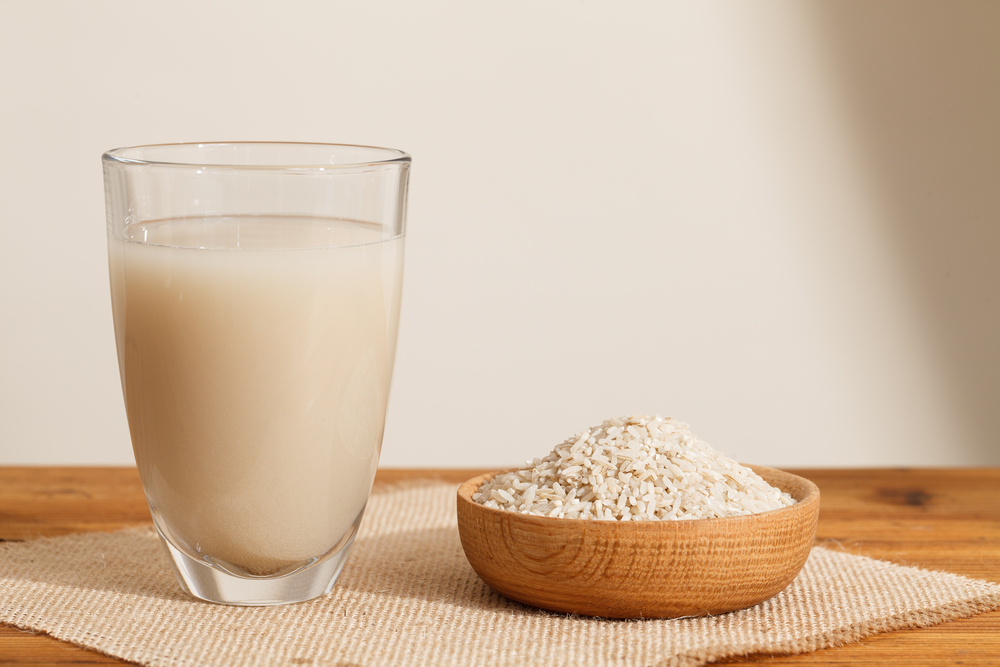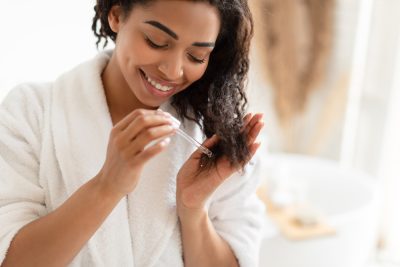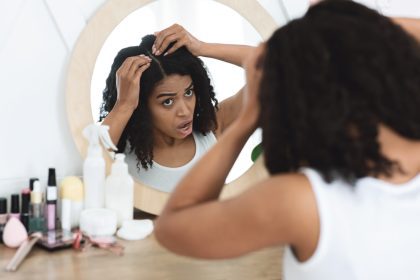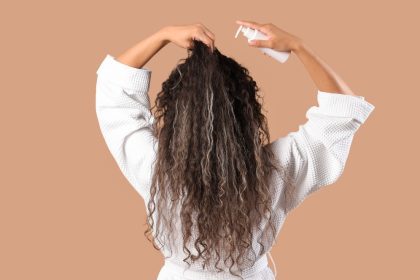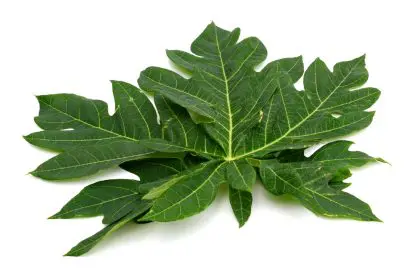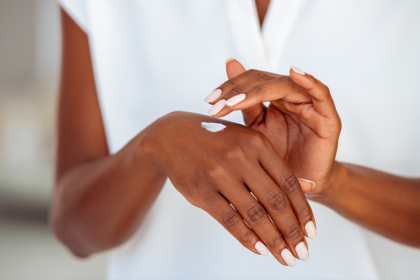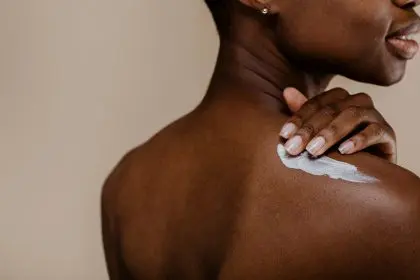Hair care enthusiasts around the world are rediscovering an ancient beauty secret that’s been hiding in plain sight within their kitchen pantries. Rice water, a simple byproduct of cooking rice, is experiencing a remarkable renaissance as people discover its incredible ability to transform lackluster locks into glossy, healthy-looking strands that rival expensive salon treatments.
This humble ingredient, once discarded down the drain after meal preparation, has emerged as a powerful hair care solution that costs mere pennies to create while delivering results that often surpass commercial products costing hundreds of dollars. The transformation happening in bathrooms across the globe represents a return to natural beauty practices that our ancestors knew worked but modern society had largely forgotten.
The science behind rice water’s effectiveness lies in its rich composition of vitamins, minerals, and amino acids that hair desperately craves for optimal health and appearance. When applied consistently as a leave-in treatment, these nutrients penetrate the hair shaft, repairing damage from within while creating a protective barrier that shields strands from environmental stressors and daily styling damage.
The remarkable science of rice transformation
Rice water contains an abundance of inositol, a carbohydrate that remains in the hair even after rinsing, continuing to repair and protect damaged strands long after application. This unique compound helps reduce surface friction on hair, making it smoother, shinier, and more manageable while preventing future breakage and split ends.
The fermentation process that many people use when preparing rice water creates additional beneficial compounds that enhance its hair-strengthening properties. During fermentation, the pH of rice water changes, making it more compatible with hair’s natural pH levels while increasing the concentration of vitamins and antioxidants that promote healthy hair growth.
Amino acids present in rice water serve as building blocks for stronger hair structure, helping to fill in microscopic gaps in damaged hair cuticles. This process creates smoother hair surfaces that reflect light more effectively, resulting in the enhanced shine that users consistently report after incorporating rice water treatments into their routines.
The presence of vitamins B, C, and E in rice water provides antioxidant protection that helps prevent premature aging of hair follicles and maintains the vibrancy of natural hair color. These vitamins also support scalp health, creating an optimal environment for healthy hair growth and reducing issues like dandruff and irritation.
Creating the perfect rice water formula
The process of creating effective rice water begins with selecting the right type of rice, though virtually any variety will work. Brown rice tends to produce more nutrient-dense water due to its intact bran layer, while white rice creates a lighter solution that may be preferable for fine or easily weighted-down hair types.
The basic preparation method involves rinsing rice thoroughly to remove any surface impurities, then soaking it in clean water for 15 to 30 minutes. The ratio of rice to water can vary depending on desired concentration, but a typical formula uses one cup of rice to two cups of water for optimal nutrient extraction without creating an overly thick consistency.
Straining the rice water through a fine mesh or cheesecloth removes any remaining rice particles, leaving behind a cloudy, nutrient-rich liquid that can be used immediately or enhanced through fermentation. The fresh rice water can be stored in the refrigerator for up to one week, though many users prefer to prepare smaller batches more frequently to ensure maximum potency.
For enhanced benefits, many people choose to ferment their rice water by leaving it at room temperature for 12 to 24 hours before refrigerating. This fermentation process increases the concentration of beneficial compounds while creating a slightly sour smell that indicates the development of probiotics and enzymes that further support hair and scalp health.
Mastering the leave-in spray technique
Transforming rice water into an effective leave-in spray requires dilution to prevent protein overload, which can make hair feel stiff or brittle with overuse. A typical dilution ratio involves mixing one part rice water with two to three parts clean water, though individuals may need to adjust this ratio based on their hair’s specific needs and porosity levels.
Adding a few drops of essential oils like lavender, rosemary, or peppermint not only improves the scent of the rice water spray but also provides additional hair and scalp benefits. These oils can stimulate circulation, provide antimicrobial properties, and add aromatherapy benefits that make the hair care routine more enjoyable and relaxing.
The spray application technique significantly impacts results, with the most effective method involving sectioning damp hair and applying the rice water mixture from mid-length to ends, avoiding the scalp area where buildup might occur. Gently combing through the hair with a wide-tooth comb ensures even distribution while preventing tangles and breakage.
Many users find that applying rice water spray to slightly damp hair provides better penetration and absorption than applying it to completely wet or dry hair. The optimal timing appears to be when hair is about 70% dry, allowing the nutrients to penetrate effectively without causing excessive dilution or poor adherence.
Customizing formulas for different hair types
Fine hair benefits from more diluted rice water solutions to prevent weighing down delicate strands, while thick or coarse hair can typically handle stronger concentrations that provide more intensive treatment. Understanding individual hair porosity helps determine the ideal frequency and concentration for optimal results without overloading the hair with protein.
Low porosity hair, which has tightly closed cuticles, may require pre-treatment with gentle heat or steam to help rice water penetrate effectively. High porosity hair, conversely, absorbs rice water readily but may need more frequent applications to maintain benefits since nutrients can escape as easily as they enter.
Curly and textured hair types often respond exceptionally well to rice water treatments due to their naturally higher porosity and tendency toward dryness. The moisturizing and strengthening properties of rice water can help define curl patterns while reducing frizz and enhancing natural texture without weighing down delicate curl formation.
Color-treated hair requires special consideration when using rice water, as the protein content can sometimes affect color retention or vibrancy. Starting with highly diluted solutions and gradually increasing concentration allows users to find the optimal balance between hair health benefits and color preservation.
Maximizing results through consistent application
Consistency proves crucial for achieving visible improvements in hair health and appearance through rice water treatments. Most users begin to notice changes in hair texture and shine within two to three weeks of regular use, with more dramatic improvements becoming apparent after six to eight weeks of consistent application.
The frequency of rice water treatments varies among individuals, but most people find that using the spray two to three times per week provides optimal benefits without causing protein overload. Some individuals with severely damaged hair may benefit from daily application initially, then reducing frequency as hair health improves.
Combining rice water treatments with other natural hair care practices amplifies results significantly. Using sulfate-free shampoos, incorporating regular deep conditioning treatments, and protecting hair from heat damage all work synergistically with rice water to create comprehensive hair health improvements.
Seasonal adjustments to rice water routines help maintain optimal results year-round, with many users increasing frequency during dry winter months and reducing applications during humid summer periods when hair may require less intensive treatment to maintain balance.
Advanced preparation techniques for enhanced benefits
Boiling rice water creates a more concentrated solution that some users prefer for severely damaged hair, though this method requires careful dilution to prevent protein overload. The heat extraction process releases additional nutrients from the rice while creating a shelf-stable product that can be stored longer than traditional soaking methods.
Adding natural ingredients like aloe vera gel, honey, or coconut oil to rice water sprays creates customized treatments that address specific hair concerns. Aloe vera provides additional moisture and soothing properties, honey acts as a natural humectant, and coconut oil adds essential fatty acids that support hair health.
Some enthusiasts experiment with different rice varieties to create specialized treatments, with jasmine rice providing additional fragrance, black rice offering higher antioxidant content, and glutinous rice creating more concentrated protein treatments for severely damaged hair.
Creating concentrated rice water ice cubes allows for convenient storage and portion control, making it easy to prepare fresh diluted sprays as needed while ensuring optimal potency and reducing waste from unused solutions.
Addressing common concerns and troubleshooting
Protein overload represents the most common issue encountered by rice water users, typically manifesting as stiff, brittle, or straw-like hair texture. This condition can be easily remedied by reducing application frequency, increasing dilution ratios, or incorporating more moisturizing treatments to balance protein levels.
The distinctive smell of fermented rice water can be off-putting to some users, but this issue can be addressed by adding essential oils, reducing fermentation time, or using fresh rice water instead of fermented versions. The smell typically dissipates quickly after application and is rarely noticeable once hair dries completely.
Some individuals experience scalp irritation when using rice water, often due to applying undiluted solutions directly to the scalp or using overly concentrated mixtures. Proper dilution and limiting application to hair strands rather than scalp areas typically resolves these issues quickly.
Storage concerns can be addressed by preparing smaller batches more frequently, using proper refrigeration, and adding natural preservatives like vitamin E oil to extend shelf life while maintaining product safety and effectiveness.
Long-term benefits and hair transformation
Extended use of rice water treatments often results in measurable improvements in hair strength, with many users reporting reduced breakage and fewer split ends after several months of consistent application. The cumulative effect of regular protein and vitamin delivery creates stronger hair structure that better withstands daily styling and environmental stressors.
Hair growth improvements frequently accompany regular rice water use, though these benefits likely result from improved scalp health and reduced breakage rather than direct growth stimulation. Healthier hair breaks less frequently, allowing existing growth to accumulate into longer lengths over time.
The shine enhancement from rice water treatments often becomes more pronounced with continued use, as the cumulative smoothing of hair cuticles creates increasingly reflective surfaces that catch and reflect light more effectively. This natural glossiness often eliminates the need for commercial shine products that can build up over time.
Many long-term users report that their hair becomes more manageable and easier to style with regular rice water treatments, requiring fewer styling products and less manipulation to achieve desired looks. This reduction in product dependence and styling stress contributes to overall hair health improvements.
The journey from dull, damaged hair to shiny, healthy strands through rice water treatments represents more than just cosmetic improvement. This transformation embodies a return to natural beauty practices that work in harmony with hair’s biological needs rather than masking problems with synthetic solutions. The remarkable results achieved through this simple kitchen ingredient demonstrate that effective hair care doesn’t require expensive products or complex procedures, just consistency, patience, and understanding of what hair truly needs to thrive.

